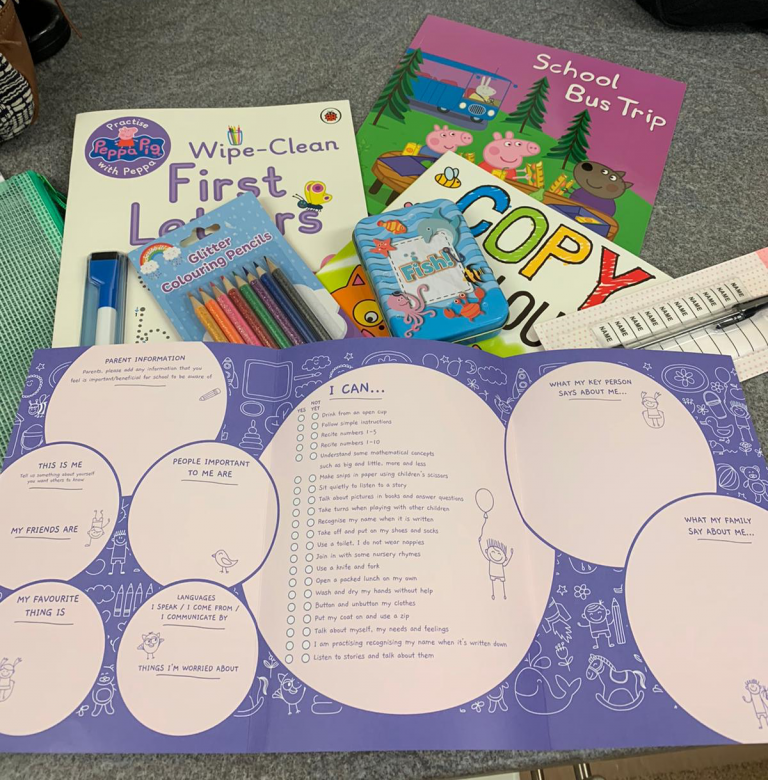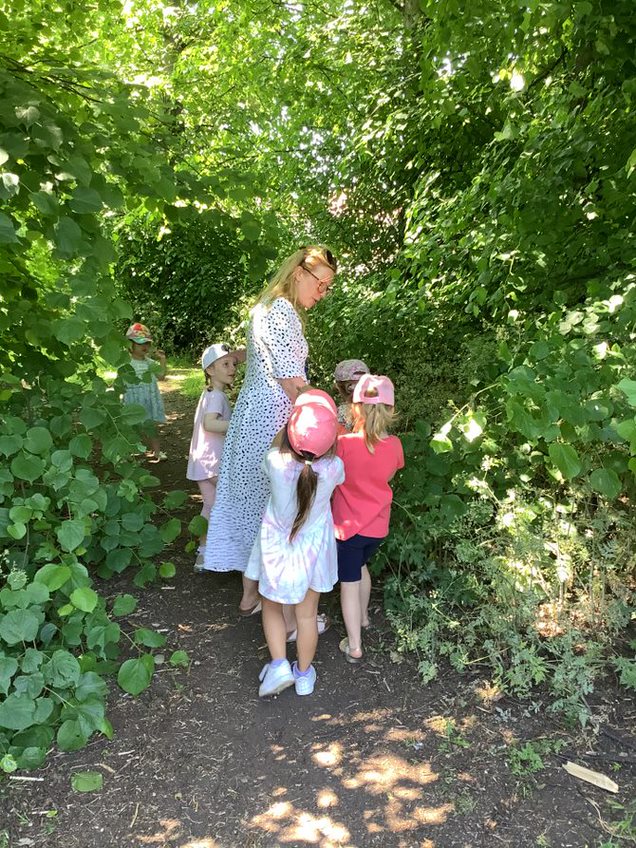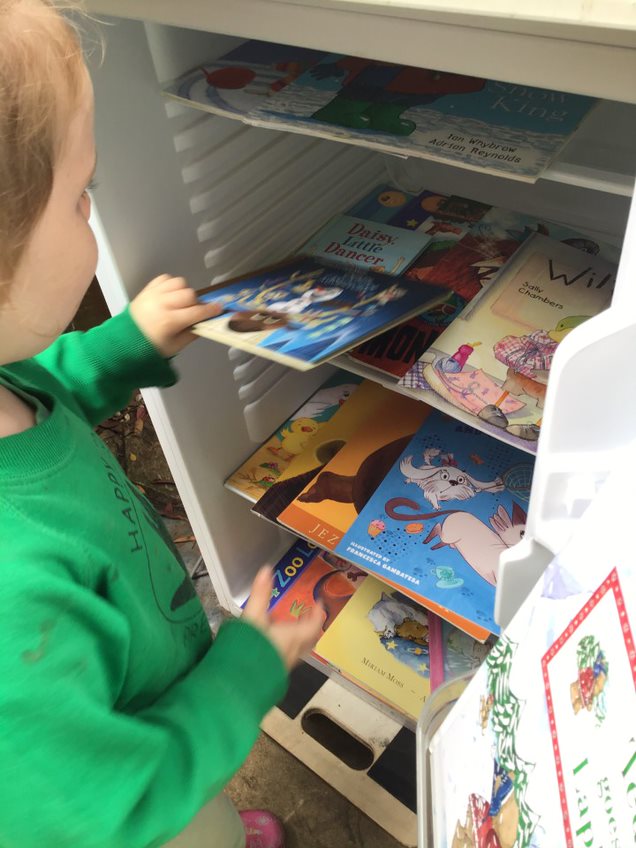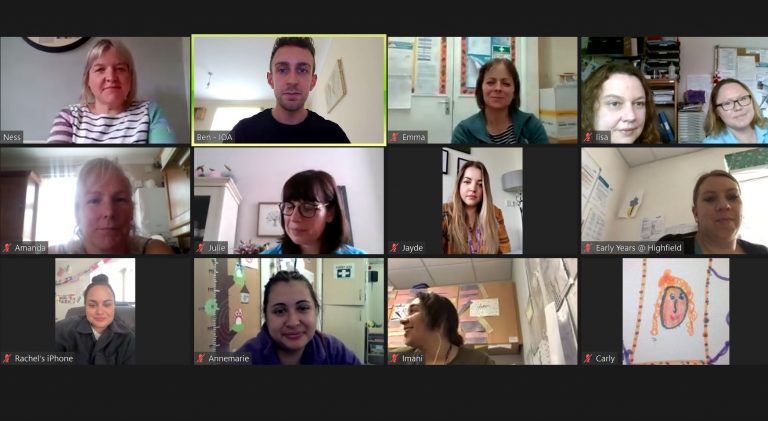Why was the project needed?
After the disruption and lockdowns caused by the Covid 19 pandemic in 2020, early years settings were increasing concerned about the lack of support they were able to offer families in the Spring and Summer term of 2021, when continuing lockdowns and restrictions meant that parents and carers had to drop children at the nursery door. Traditionally drop off and pick up was a time when early years staff would offer support and tips on children’s early development, and never was it more needed than at this challenging time.
Primary school colleagues, parents and nursery staff were concerned that children has missed much needed opportunities to socialise and meet early developmental goals, particularly in language and emotional resilience, and would not be confident and well prepared to make a strong start to their school journey. Covid restrictions made primary schools’ usual programme of planned outreach and preparation more challenging to deliver.
What happened and what was the impact?
A team of “family support assistants” (FSAs) were recruited into 15 nurseries, whose role was to reach out and help parents to confidently support their children’s early development needs. They worked collaboratively to respond to parents’ needs, creating a transition “passport” and a package of activities that would give children opportunities to develop their social skills, emotional resilience, communication and language skills and confidence.
The Ipswich transition passport included characters and icons from learning used in settings for children to recognise, and included activities and tasks to help families prepare for school in September. It also held useful information and links to resources for families and an “I can” page with a “yes” and “not yet” check box for things like :
- Recognise my name when it is written
- Wash and dry my hands
- Join in with some nursery rhymes
- Use a knife and fork
Activities in passport include –
- Practice putting on uniform
- Learning to eat at the times I will on school days
- Number rhymes and counting games (Ideas)
- Which nursery rhyme
- Tracing patterns and colouring in
- Threading beads
- Putting their shoes on
- Tie laces
- Taking turns
Alongside the passport the FSA team developed the following activities across their settings:
A lending library – 330 books (30 of which were bi-lingual) to be used across the 14 settings – tied in to activities and the passport and combined with the offer of literacy support for families and practitioners with “story time” sessions to help with reading aloud to children. Settings used fridges to store the books.
Covid secure parent picnics enabled parents and children to come to a meadow/ field/ play area near or in the setting. Reading/school readiness activities and support for families with English as an Additional Language from Volunteering Matters’ “EAL Community Champions” were offered at the picnics, as well as an adult literacy offer from Ready Easy.
Puppet Shows were put on for children exploring their anxieties through stories like “the 3 little pigs go to school”
6 weeks of sport activities (2 sessions a week term/out of term depending on setting) –
- Week 1 – Soft top archery – introduction to new equipment, fine motor skills losing bow and pulling string. Hand and eye coordination as well as taking turns
- Week 2 – Soft top archery – introduction competition with self, scoring system and success, resilience and self-improvement
- Week 3 – Agility, balance and coordination – skills on balance, control of body and moving in different spaces
- Week 4 – Agility, balance and coordination – use of equipment while moving, extension of body control
- Week 5 – Hitting and striking – various games and skills of hitting and striking, i.e. kicking footballs, hitting static tennis ball, golf tee shot
- Week 6 – Game play and sharing – introducing low level games with scoring systems, i.e. bean bags into hoops, skittles etc. Resilience and self-esteem building
What did and didn't work?
Where primary schools received children in September with a passport, many staff noted its usefulness in enabling them to quickly get to know children and their needs. Constructive feedback has led to a revised passport document in use in 2022, which you can download below, as well as the development of a common transfer document to share information between settings.
The puppet shows and sports activities gave much needed opportunities for children to mix and develop their social skills, supporting oracy and emotional literacy.
The parent picnics gave covid-safe opportunities for parents to ask questions about transition – improving parental engagement, and relieved parental anxiety
How did you measure success?
The work of the FSAs was developed in the academic year 2021-22, and underpinned the IOA Strong School Start project – expanding the number of Family Support Assistants, and linking them to Early Years Transition Leads (EYTLs) in primary schools. This group worked together to evaluate the transition project from a covid response project, and develop a more sustainable set of effective transition approaches.
EYTLs were able to give feedback on the progress of children who had benefited from the pilot transition programme, and decide which activities to sustain, and collectively the group have developed the passport, which can be downloaded below.





If you've got any thoughts and ideas of how this approach could be improved or an positive impact it's had for you, add them below
Login or register now to post any comments